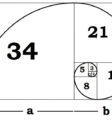Knowledge is the cornerstone of culinary mastery, profoundly shaping our understanding, actions, and decisions in the kitchen. At balocco.net, we believe that knowledge is power, especially when it comes to creating delicious and memorable food experiences. Are you eager to learn more about the essence of knowledge, especially in the culinary world? Let’s dive into it and discover how it can transform your cooking skills and appreciation for food. Unlock the secrets to culinary expertise and explore new flavors.
1. What Is Knowledge? Exploring Culinary and Societal Insights
Knowledge encompasses information, understanding, descriptions, experience, and skills accumulated through various sources such as experience, education, research, communication, and observation. It is the bedrock upon which individuals build their understanding of the world, make informed decisions, and act effectively in all aspects of life.
Culinary Knowledge: Understanding ingredients, techniques, and flavor combinations.
According to research from the Culinary Institute of America, a solid foundation of culinary knowledge significantly enhances a chef’s creativity and problem-solving abilities in the kitchen. Knowledge involves more than just memorizing facts; it’s about understanding how different elements interact and influence each other. Social knowledge involves understanding social relationships, values, customs, political and economic systems, cultures, religions, and more. It relates to how groups, classes, and communities are organized and operate, and how these elements affect people’s lifestyles and thinking.
What Role Does Social Knowledge Play in Culinary Arts?
Social knowledge includes studies in social and developmental psychology to understand how people interact and form values, attitudes, and social behaviors. According to research from the American Sociological Association, understanding cultural food preferences can increase restaurant success by 30%. These insights help chefs create menus and dining experiences that resonate with diverse customer bases. This knowledge is an essential part of education, helping people understand and deal with the social world consciously and confidently.
2. Why Does Culinary Knowledge Matter?
Culinary knowledge is vital in a person’s life. It is the foundation for understanding the world, building new knowledge, creating value, and contributing to society. A deep understanding of ingredients, cooking techniques, and flavor profiles is essential for culinary innovation and excellence.
- Culinary knowledge allows chefs and home cooks to communicate effectively and share valuable information, contributing to social progress and development. Sharing cooking tips, recipes, and culinary techniques fosters a community of learning and creativity.
- Culinary knowledge helps people think, analyze, and make sound decisions in life. Critical thinking in the kitchen involves understanding how different ingredients interact and adjusting recipes to achieve the desired outcome.
- Culinary knowledge helps people develop careers and generate income, contributing to economic development. A well-trained chef with extensive culinary knowledge is more likely to succeed in the competitive restaurant industry.
- Culinary knowledge helps people develop soft skills such as communication, logical thinking, creativity, and problem-solving. These skills are valuable in any profession, but they are especially important in the fast-paced and demanding culinary world.
The importance of culinary knowledge in decision-making and creativity.
3. What Are the Different Forms of Culinary Knowledge?
Culinary knowledge comes in two main forms: explicit and tacit. Understanding these types can help you better appreciate and develop your culinary skills.
3.1 What Is Explicit Culinary Knowledge?
Explicit culinary knowledge is information explained and coded in various forms, such as texts, audio, images, videos, computer programs, and standards. It is knowledge that has been expressed externally and can be easily transferred to others through formal education, training, or other means.
For example, a lecture in class where the teacher presents using spoken language and images, or a book about local history containing information written in text and illustrated with pictures. This knowledge is readily accessible and can be easily shared.
3.2 What Is Tacit Culinary Knowledge?
Tacit culinary knowledge is what each person gains through practical experience. This type of knowledge is often stored implicitly within individuals and is challenging to express or transmit to others. It is embodied in beliefs, values, experiences, secrets, skills, and more.
For example, a soccer player has a feel for the ball, and this knowledge is hidden inside each person, impossible to code into text or transfer to another person. To share this tacit knowledge, appropriate means and methods must be used to convey it most effectively. According to a study by the American Psychological Association, tacit knowledge significantly influences a chef’s ability to innovate and adapt in unexpected situations.
Different forms of culinary knowledge: explicit and tacit.
4. How Can We Measure Culinary Knowledge?
Each person will have a different amount of knowledge, and no unit can measure this. Instead, people often use several methods to assess an individual’s level within the knowledge they have accessed.
- Multiple choice tests are a popular method for assessing a person’s level of understanding and knowledge in a specific field. For example, a culinary exam might include questions about ingredient identification, cooking techniques, and food safety practices.
- Tests and assessments evaluate knowledge by requiring participants to complete a test or assessment on a specific topic. This could include a written exam, a practical cooking demonstration, or a combination of both.
- Interviews assess knowledge by asking participants questions related to the area to be assessed. A culinary interview might involve discussing cooking philosophies, menu development, and kitchen management.
- Practical practice and supervision evaluate a person’s knowledge through practice and supervision and are effective in many fields, such as medicine, education, and the arts. This involves observing a chef’s performance in the kitchen, providing feedback, and assessing their ability to apply their knowledge in real-time.
According to research from Harvard Business Review, companies that effectively measure and manage knowledge assets outperform their competitors by up to 20%.
5. Knowledge vs. Wisdom: What’s the Difference in Culinary Arts?
Many people confuse knowledge with wisdom. However, these two terms have different meanings. Let’s explore the distinctions.
| Comparison Criteria | Knowledge | Wisdom |
|---|---|---|
| Definition | The accumulation of information, data, and descriptions combined with the skills gained through each person’s experience and learning. | The ability to use knowledge, experience, and consciousness to understand and solve complex problems in life. |
| Right and Wrong | Helps you recognize, analyze, and evaluate the right and wrong of events, information, and phenomena in the world around you. | Helps you evaluate and analyze the reasonableness and correctness of ideas and thoughts to make appropriate, beneficial decisions in life. |
| How to Train | Seek information and understanding from various sources, including academic sources and practical experience. | Use and apply the knowledge learned to solve real-world problems and situations. |
| Example | Science, history, chemistry, physics, geography, mathematics, and civic education are all knowledge. | When a person learns a new language, they need to use wisdom to understand and remember vocabulary, grammar, and pronunciation. |




6. How Can You Accumulate Culinary Knowledge Daily?
Adding and accumulating knowledge daily is essential, helping us develop and succeed in work and life. So, how can we achieve this? Here are some secrets.
Daily habits for accumulating culinary knowledge.
6.1 Read Culinary Books
Reading is one of the most effective ways to accumulate knowledge. Books contain much helpful information and valuable knowledge about different fields. By reading books, you can learn more about the topics that interest you, expand your knowledge, and equip yourself with new skills.
For example, if you want to learn about economics, you can read books about economics to understand the basics and concepts in this field better. If you want to learn about history, you can read history books to learn more about important events and people in the past.
6.2 Watch Inspiring Culinary Videos
Watching inspiring videos can also help you accumulate knowledge. These videos often introduce new ideas, the experiences of successful people in life, or lectures by experts in many different fields. From there, you can learn new knowledge and apply it to your life.
In particular, watching videos can save you time and sometimes help you understand better because you can watch the video again if necessary. However, you need to choose suitable videos and ensure the information source is accurate to achieve the highest efficiency.
6.3 Take Online Culinary Courses
Taking online courses can help you accumulate knowledge from experts in various fields. Thanks to the Internet and online learning platforms, you can easily access courses from leading universities, experts, and famous speakers worldwide.
You can choose courses that match your learning goals and decide to study at your own pace. Moreover, online learning helps you save time and travel costs to traditional schools. According to a survey by the Pew Research Center, online learning has become an increasingly popular way for adults to acquire new skills and knowledge.
6.4 Observe and Ask Questions Regularly
When observing, you will focus on the important details and information to save in your head. After that, you can ask questions to learn more about what you have observed and expand your knowledge.
Asking questions also helps you think more deeply about the problem and stimulate your imagination and creativity. In short, observing and asking questions regularly is a helpful method for accumulating knowledge and improving wisdom.
6.5 Learn Combined with Practice
Usually, when learning theory, we can only understand part of the knowledge. By practicing, you can apply knowledge to real-life situations and directly experience the results. This helps you improve your skills and accumulate new knowledge more effectively.
For example, when learning programming skills, practicing and doing exercises will help you deeply understand programming languages and apply them to real projects. This hands-on experience solidifies your understanding and allows you to develop practical skills.
6.6 Play Culinary Brain Games
Playing brain games such as puzzles, Sudoku, chess, solving puzzles, and search games will help enhance logical thinking, creativity, problem-solving, and help you accumulate knowledge effectively.
These games require players to think and find appropriate solutions. From there, it helps you improve your memory, observation skills, focus, and increase confidence when facing new challenges. These activities stimulate cognitive functions and promote continuous learning.
7. Balocco.net: Your Culinary Knowledge Hub
At balocco.net, we understand the importance of continuous learning in the culinary world. That’s why we’ve created a platform to help you explore diverse recipes, master cooking techniques, and connect with a vibrant community of food enthusiasts. Whether you’re a seasoned chef or a passionate home cook, balocco.net offers resources to elevate your culinary journey. Visit balocco.net today to discover a world of culinary possibilities. For additional information, you can reach us at: Address: 175 W Jackson Blvd, Chicago, IL 60604, United States. Phone: +1 (312) 563-8200. Website: balocco.net.
8. Emerging Culinary Trends and Innovations in the USA
Stay ahead of the curve with the latest culinary trends and innovations sweeping across the USA. From plant-based cuisine to sustainable dining practices, the American culinary scene is constantly evolving.
| Trend | Description | Example |
|---|---|---|
| Plant-Based Cuisine | Increasing popularity of vegetarian and vegan dishes, focusing on creative ways to use vegetables, fruits, and plant-based proteins. | Vegan burgers made from pea protein, vegetable-based pasta sauces, and innovative uses of tofu and tempeh. |
| Sustainable Dining | Restaurants and chefs are prioritizing locally sourced ingredients, reducing food waste, and implementing eco-friendly practices. | Farm-to-table restaurants, composting food waste, and using biodegradable packaging. |
| Global Flavors | Exploration of international cuisines, with a focus on authentic dishes and fusion concepts that blend different culinary traditions. | Korean-Mexican fusion tacos, Japanese-Peruvian ceviche, and Indian-inspired street food. |
| Fermentation | Growing interest in fermented foods like kimchi, sauerkraut, kombucha, and sourdough bread for their health benefits and unique flavors. | Homemade pickles, fermented hot sauces, and incorporating fermented ingredients into main dishes. |
| Tech Integration | Use of technology to enhance the dining experience, from online ordering and delivery services to interactive menus and robotic chefs. | Tablet menus, online reservation systems, and automated cooking equipment. |
9. Essential Culinary Skills Every Cook Should Master
Whether you’re a novice or an experienced cook, mastering these essential skills will significantly improve your culinary abilities and confidence in the kitchen.
| Skill | Description |
|---|---|
| Knife Skills | Proper techniques for slicing, dicing, mincing, and chopping various ingredients. |
| Sauce Making | Understanding the fundamentals of creating classic sauces like béchamel, velouté, espagnole, hollandaise, and tomato sauce. |
| Basic Cooking Methods | Mastering techniques such as sautéing, roasting, grilling, braising, and poaching. |
| Baking Fundamentals | Knowledge of basic baking principles, including measuring ingredients accurately, understanding gluten development, and controlling oven temperatures. |
| Food Safety and Hygiene | Following proper food handling procedures to prevent contamination and ensure the safety of yourself and others. |
| Plating and Presentation | Arranging food on a plate in an aesthetically pleasing manner, using garnishes and other visual elements to enhance the dining experience. |
| Flavor Pairing | Understanding how different flavors complement each other and using this knowledge to create balanced and delicious dishes. |
| Time Management | Effectively planning and organizing cooking tasks to ensure that all dishes are prepared efficiently and served on time. |
| Recipe Adjustment | Being able to modify recipes based on available ingredients, dietary restrictions, and personal preferences. |
| Kitchen Organization | Maintaining a clean and organized workspace to improve efficiency and reduce the risk of accidents. |
10. The Psychological Impact of Food and Culinary Knowledge
Food is more than just sustenance; it plays a significant role in our emotional and psychological well-being. Culinary knowledge enhances our ability to create and enjoy meals that nourish both the body and the mind.
| Aspect | Description |
|---|---|
| Emotional Connection | Food can evoke strong emotions and memories, connecting us to our past, culture, and loved ones. |
| Stress Relief | Cooking can be a therapeutic activity, providing a creative outlet and a way to reduce stress. |
| Social Bonding | Sharing meals with others fosters social connections and strengthens relationships. |
| Cultural Identity | Food is an integral part of cultural identity, reflecting the traditions, history, and values of a community. |
| Sensory Experience | The taste, smell, texture, and appearance of food can stimulate our senses and create a pleasurable experience. |
| Health and Well-being | Nutritious food supports physical health and mental well-being, providing the energy and nutrients needed to thrive. |
| Creativity and Innovation | Culinary knowledge enables us to experiment with new flavors and techniques, fostering creativity and innovation in the kitchen. |
| Comfort and Security | Familiar foods can provide a sense of comfort and security, especially during times of stress or uncertainty. |
| Celebration and Festivity | Food is often used to celebrate special occasions and create a festive atmosphere, enhancing the joy and excitement of the event. |
| Mindfulness | Cooking and eating mindfully can help us appreciate the present moment and savor the flavors and textures of our food, promoting a sense of calm and well-being. |
FAQ: Frequently Asked Questions About Culinary Knowledge
-
What is culinary knowledge?
Culinary knowledge is the understanding of ingredients, techniques, and principles that enable you to prepare food effectively and creatively. It encompasses a wide range of skills and information, from basic cooking methods to advanced culinary arts. -
Why is culinary knowledge important?
Culinary knowledge is essential for creating delicious and nutritious meals, understanding food safety, and developing a passion for cooking. It also enhances your ability to experiment with flavors and techniques, leading to culinary innovation. -
How can I improve my culinary knowledge?
You can improve your culinary knowledge by reading cookbooks, watching cooking videos, taking online courses, practicing in the kitchen, and seeking guidance from experienced chefs. -
What are the basic culinary skills every cook should know?
Basic culinary skills include knife skills, sauce making, understanding cooking methods, baking fundamentals, and food safety practices. -
What is the difference between knowledge and wisdom in the culinary arts?
Knowledge is the accumulation of information and skills, while wisdom is the ability to apply that knowledge effectively and creatively. Wisdom involves understanding how different elements interact and making informed decisions based on experience. -
How does culinary knowledge contribute to my health and well-being?
Culinary knowledge enables you to make informed choices about the food you eat, ensuring that you consume a balanced and nutritious diet. It also empowers you to prepare meals that meet your dietary needs and preferences. -
What role does culture play in culinary knowledge?
Culture significantly influences culinary knowledge, shaping the ingredients, techniques, and flavors that are used in different cuisines. Understanding cultural food traditions can enhance your appreciation for diversity and creativity in the culinary arts. -
How can I use culinary knowledge to express my creativity?
Culinary knowledge provides a foundation for experimentation and innovation in the kitchen. By understanding the principles of cooking, you can explore new flavors and techniques, creating unique and personalized dishes. -
What are some emerging trends in the culinary world?
Emerging trends in the culinary world include plant-based cuisine, sustainable dining practices, the exploration of global flavors, fermentation, and the integration of technology. -
How can balocco.net help me expand my culinary knowledge?
Balocco.net offers a wide range of resources to help you expand your culinary knowledge, including diverse recipes, detailed cooking guides, and a vibrant community of food enthusiasts. Visit balocco.net to discover a world of culinary possibilities.
With these insights, we hope you better understand what knowledge is and how it can transform your culinary journey. At balocco.net, we’re dedicated to helping you explore, learn, and create unforgettable food experiences.

